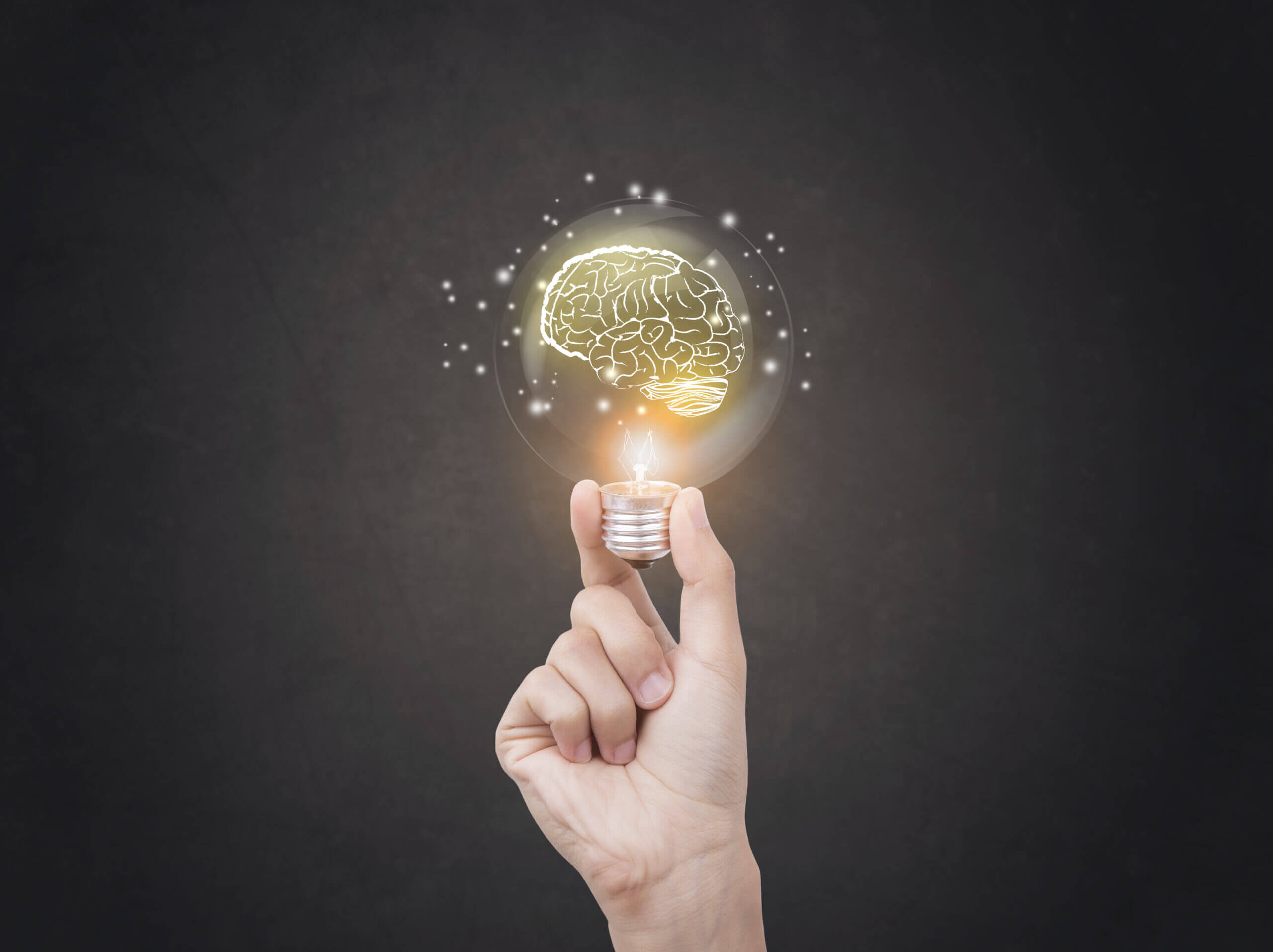With age, a natural decline in memory capacity and information processing occurs. Brain activity slows down, and its efficiency decreases as one gets older.
Since memory is a crucial aspect of daily functioning, impairment in memory quality significantly affects a person’s quality of life and mental well-being.
One of the recommended ways, which have been researched and found to be beneficial for brain activity, is training through activities that require thinking, concentration, focus, and the utilization of various cognitive abilities in memory exercises of different types.
It is important to know that these training exercises are not merely thinking games for adults that offer a way to pass the time. So, what is the difference between Candy Crush and brain training?
Companies like the Israeli-based “Effective-8” that offer a unique software for brain and memory training to individuals aged 55 and above, developed by experts and based on up-to-date research in the field of memory, make all the difference: expertise. The scientific knowledge from recent decades allows for the construction of personalized exercises to strengthen memory in the senior years, in a much more efficient and targeted manner than old-generation thinking games.
What is the importance of brain training?
Numerous studies have indicated that we should treat our brain like any muscle in our body. In other words, it is important to exercise it at every age, especially in older adulthood when memory weaknesses are more common.
Just as an inactive muscle weakens, so does our brain. But do not despair: our brain has the ability to change and regenerate throughout our lives, and this is an important fact that should be acknowledged and acted upon accordingly.
Brain training and exercises for memory preservation challenge and stimulate the brain, forcing it to “exercise” and remain alert and functional. As a person ages, neural connections in their brain diminish. Unused neural circuits fade away over time, while circuits that remain in use continue to operate efficiently.
Various exercises for brain training are a good strategy against declining cognitive abilities, particularly memory and concentration. The cognitive challenge involved in these exercises activates neglected neural circuits, helping to maintain brain connections and prevent their decay.
A long-term research study published in 2014 found significant cognitive improvement in older adults who engaged in brain training. Furthermore, they managed to maintain their level of functioning for several years. That’s encouraging, isn’t it?
Can memory be improved through thinking games for adults?
The short answer is no, but memory can certainly be preserved. Our memory abilities are influenced by many factors, including our genetics, lifestyle, nutrition, physical activity, social circles, and, of course, age. We cannot prevent the natural decline in cognitive abilities that occurs with age, but we can definitely create a cognitive reserve that helps maintain existing functionality over time.
Preserving memory can be achieved by learning efficient and flexible methods for encoding and retrieval of information, as well as through repetitive and varied training that familiarizes the brain with successful and improved storage and retrieval of information.
What else can be done to support our memory?
External aids for memory improvement – Proper daily management can help a person remember. There are various methods: deciding on specific places for different items (such as a designated spot for keys or glasses), writing reminders in a diary, on a mobile phone, on a board, or on the refrigerator, setting reminders for important activities at specific times (like taking medication at a certain hour), and so on.
Internal aids for memory improvement – Learning ways and methods for processing and organizing the information we want to remember, such as: repeating the name we want to remember multiple times, marking important points in an article with a marker, creating acronyms that represent a set of information on a specific topic, creating a mental image that represents the information we want to remember, and more. And here’s a tip for those who have trouble remembering if they locked their car or turned off the stove: a particularly effective method is to do something funny and silly during the activity you want to remember, like singing the “Locking Song” or dancing the “Stove Dance.” This will anchor the activity in your memory and make it easier for you to know that the car is indeed locked and the stove is turned off, allowing you to feel at ease.
How do brain training games work?
The aforementioned methods and techniques improve the ability to transfer information from short-term memory to long-term memory by using the information efficiently.
In addition to the cognitive aspect, there is also a psychological aspect: when a person performs various exercises for the benefit of their memory, they take responsibility for the quality of their memory and engage in an active action that is supposed to ease and help them.
It is important for everyone to remember that the quality of memory is dynamic and tends to change with age for various reasons. Therefore, the act of training can directly affect its quality and the individual’s functioning in the present and future.
It is recommended to start training the brain and memory as early as possible and see the practice as a way of life that benefits us.
Board games for adults
Board games may not guarantee memory improvement, but they certainly engage and challenge it. These games activate brain regions responsible for complex thinking and challenge cognitive abilities such as problem-solving, strategic thinking, planning and organizing actions, critical thinking, and decision-making.
Additionally, board games bring joy and enjoyment, which are known to be excellent remedies for stress and anxiety. And of course, the social aspect of sitting together, collaborating, and experiencing a sense of belonging and group enjoyment is highly recommended at any age, especially in the third age, often characterized by feelings of loneliness and lack of belonging. It is interesting to note that studies have found that social interaction affects cognitive abilities, and social activity is an essential component for maintaining brain health.
Brain training games for adults
Brain games can help develop thinking skills alongside creative thinking reinforcement. When a person engages with a thinking game, especially one that challenges them, they have to find the solution while experimenting with different methods through trial and error, drawing conclusions from their actions, improving their reaction speed, and incorporating problem-solving abilities. All of these not only train high-level cognitive abilities but also contribute to memory practice, which should be relied upon during the game.
Examples of brain games for adults that practice memory:
– Chess: A couple of adults playing chess.
– Grouping according to alphabet letters: Decide on a topic for a group, for example, animals. Note down as many animal names as possible in alphabetical order. Then do the same with vehicles, tools, Israeli cities, and so on.
– Visual exercises: Mentally visualize pictures hanging in each room of the house, the order of furniture in each room, the decorations on the living room shelf, the names of the plants in the house and where each one is located, and so on.
– Learning a new language: Highly recommended, and every word counts.
– Solving puzzles, Sudoku, logic puzzles: Try to solve the highest difficulty level to challenge the brain.
– Short-term memory practice: Look at a picture for a short period, then hide the picture and try to recall the details and their locations.
Changing ingrained habits: For example, holding a fork with the non-dominant hand and eating with it, brushing teeth with the non-dominant hand, taking a different route to a familiar place, getting dressed with closed eyes, and so on. These actions require the brain to break out of the usual pattern and exert effort, which is exactly what we want.
Note: It’s important to adapt the games and exercises to personal preferences and abilities, and to consult with a healthcare professional if there are any concerns or limitations.
The Brain Training Software by Effectivate
Effectivate has developed a unique computerized software designed to train memory, improve concentration, strengthen cognitive abilities, and exercise the brain.
As mentioned, the goal of the software is to preserve memory to remain sharp over time, but training with the software can also lead to an improvement in the quality of life since good cognitive function is a crucial element in all aspects of our lives.
The software provides practical techniques and tools for memory enhancement and preservation. It offers memory games, memory exercises, strategies for remembering names and retrieving information quickly, and tips for daily life implementation.
The software was developed by Effectivate in collaboration with experts in neuropsychology and brain research.
The memory strengthening software is specially tailored for individuals aged 55 and above who wish to improve their memory skills and ensure optimal brain maintenance.
The Effectivate software identifies when the trainee has improved and then adjusts the difficulty level of the exercises accordingly. Due to this fact, the trainee is never “resting on their laurels” and constantly finds themselves challenged.
To use the software, no special knowledge is required, only basic computer operation and usage skills on a computer, smartphone, or tablet.
Effectivate recommends training with the software at least three times a week, for about 15 minutes each time.
Everyone can train at their convenience and in the most comfortable place for them.



